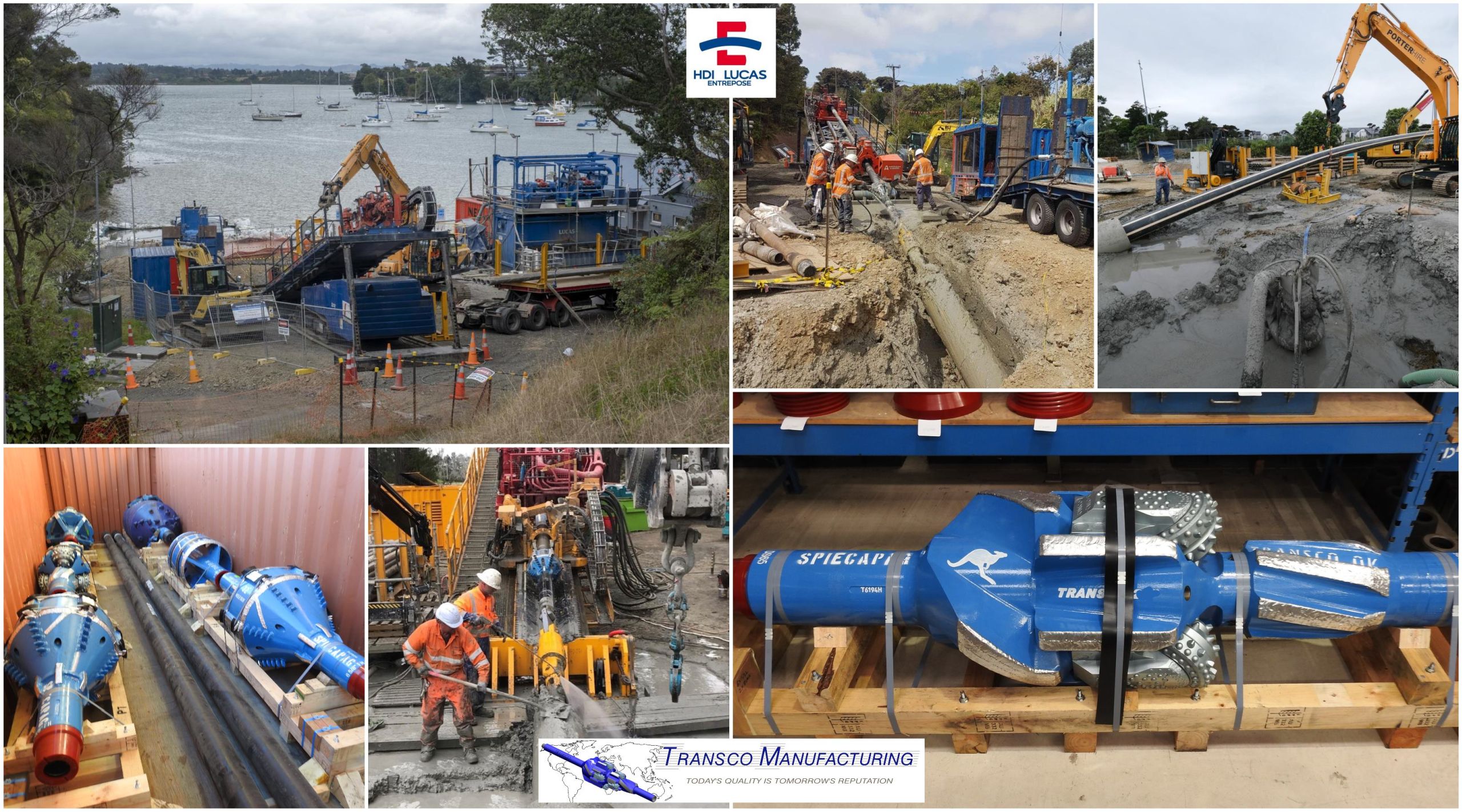
The crossingof the gas pipeline under the Maritsa riverbed and under the Studen Kladenets dam is forthcoming, which is one of the most challenging activities in the construction of the interconnector. The complex process will be carried out by means of horizontal directional drilling - it is defined by design as the most favorable method from an ecological point of view. The activity will be carried out by a subcontractor - the French company Horizontal Drilling International (HDI), which is a world leader in the industry. On the photo: Special equipment of HDI, recently used for horizontal drilling in New Zealand.
The implementation of the Greece-Bulgaria interconnector continues at a good pace, and all major project implementation activities have progressed significantly since the beginning of the year despite the complicated situation related to the COVID-19 pandemic. By the end of May, the welded sections of the pipeline have reached 145 km of the total length of the 182-kilometer route. The terrain is completely cleared, over 170 km of pipes have been distributed on site in preparation for further activities. 90 km is the length of the already fully completed sections laid in the trench.
Backfilling and holidaytesting are on schedule. In parallel, the field teams perform activities such as preparing field pipe bending, field joints coating, performing crossings with drilling. The construction of the gas metering station in Stara Zagora and the dispatching center in Haskovo has also started.
Currently, the design, procurement and construction contract is being implemented according to the approved updated schedule with a deadline for completion in December 2021. Activities on site continue to be carried out in compliance with the imposed anti-epidemic safety measures.
After the completion of the construction activities at the end of 2021, a number of obligatory procedures and legal commitments will take place before commissioning, which will take between 4 and 6 months. This includes authorization procedure, establishment of a commercial dispatching system, full licensing of the project company for the gas transmission activity on the territory of the two countries (Greece and Bulgaria), certification of ICGB as a transmission network operator and introduction of the model of an independent transmission operator.
At the same time, a comprehensive test of the infrastructure of the gas pipeline must be performed, including testing with actual supplies of natural gas. According to the current schedule, the activities until commissioning will be completed by July 1, 2022 at the latest.
The crossingof the gas pipeline under the Maritsa riverbed and under the Studen Kladenets dam is forthcoming, which is one of the most challenging activities in the construction of the interconnector. The complex process will be carried out by means of horizontal directional drilling - it is defined by design as the most favorable method from an ecological point of view.
The activity will be carried out by a subcontractor - the French company Horizontal Drilling International (HDI), which is a world leader in the industry. The time window for carrying out the activity is in compliance with the requirements of the EIA and is carefully planned in consideration with the natural life cycle of the animal species in the region. Preparatory activities for the first drilling under the Maritsa River have already began and the teams are expected to start the actual crossing at the beginning of the summer.
The project also envisages a number of above ground installations, which should be built in the coming months. To date, the working design for them has been completed, and the orders for the required equipment for all facilities have been finalized - two gas measuring stations, seven block valves and a dispatching center.
The IGB project enables the transmission of gas and supplies from new sources, making it key to Bulgaria's energy security and part of the national plan for diversification of gas sources. The capacity of the project is 3 billion cubic meters with the option to reach 5 billion cubic meters. Half of the capacity of the interconnector is already reserved, as four of the Shippersare completely new to the Bulgarian market. A contract has been signed for the supply of 1 billion cubic meters from Shah Deniz 2 based on a long-term contract with Bulgargaz.
The conclusion of the contract for construction of the interconnector dates back from the end of 2019, as one of the main commitments of the project company in structuring IGB is the obligation to control costs within the approved budget, which will ensure competitive transmission for customers. The delay in construction activities and the approved update of the construction schedule for the end of 2021 are due to objective reasons related to the global coronavirus pandemic and do not lead to direct losses. The established alternative route through the Greek system and Siderokastro provides a temporary solution for servicing the contract with Azerbaijan until IGB is put into commercial operation.
The project can attract natural gas traders from the United States, Israel, Qatar and other countries. The full potential of the project to reach the maximum possible capacity will be reached when the LNG terminal near Alexandroupolis is ready in 2023 and will be further stimulated by the LNG terminals in Turkey.
The ICGB team and the contractors of the main project activities are actively working on the completion of the interconnector in a timely manner and under conditions that meet the highest international quality requirements.
Source: Diana Zaykova, Action Global Communications Bulgaria; tel.: +359 2 980 3018; tel.: +359 885 074422